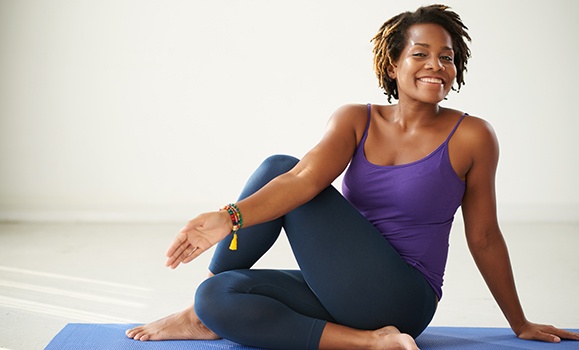News
» Go to news mainKeep it moving for your mental health

Alexi Kuhnow is a third-year medical student at Dalhousie University. Before medical school she practiced as a physiotherapist in Sports Medicine and Geriatrics where she developed a passion for helping people to be active at every age. Her interests include martial arts, hiking with her family, and trying new recipes.
As a third-year medical student at Dalhousie Medical School, I’m fascinated by the strong connection between our bodies and our brains. When we move, our brains benefit from a complex change in neurotransmitters – the chemical messengers found in our brains and nerves. These messengers include endorphins, which help us fight pain and stress.
Studies have found that movement helps improve mental health across age groups, income levels and abilities. That said, it’s important to understand what mental health means. According to the Canadian Mental Health Association, mental health is a state of well-being, about enjoying life, having a sense of purpose and being able to manage life’s highs and lows.
Movement can boost your mental health by helping you manage issues like anxiety and depression. One study found that movement appeared to help people’s mental health, whether they moved during their leisure time, for transportation, at work or doing household chores. As always, any movement is better than none, however, the study found that leisure-time movement had the most impact on mental health.
Stanford psychologist Kelly McGonigal was recently interviewed on how movement helps mental wellness. She said, “it’s as if humans were born to move. And when we are physically active, it puts us in a state of, not just body, but of mind, to be the best version of ourselves.”
In addition to helping you be more co-operative, hopeful and optimistic, when you move, “you have a brain and a nervous system that are more sensitive to pleasure and more resilient to stress,” said Ms. McGonigal.
If stress is impacting your life negatively, I recommend checking out Ms. McGonigal’s excellent Ted Talk on how to make stress your friend.
Here are some ways I add more movement to my day: I walk to work when I can, take the stairs rather than the elevator, and stand up and do a quick stretch when I’ve been at my computer for too long. And when I add movement to my leisure time, like taking a walk with my family or dancing around my kitchen while making dinner, I know that it’s a bonus for my mental health.
Remember, our bodies are made to move, and every little bit helps.
The Healthy Tomorrow Foundation was created by Doctors Nova Scotia in 2018. Our mission is to help to create a happy and healthy tomorrow for all Nova Scotians through movement.The full article can be read here.
Recent News
- Dalhousie’s first physician assistant cohort steps into Nova Scotia’s healthcare system
- Dalhousie med students explore pediatric care in Austria
- Dalhousie researchers shine at Discovery Awards with four top honours
- New $2M national study to uncover how biology, social factors shape MS outcomes
- Pathology EDIA Committee makes strides during 2024‑2025 year
- CCfV’s impact on vaccine innovation
- Unlocking the secrets of memory—with fruit flies
- Celebrating mobility research and the power of philanthropy
